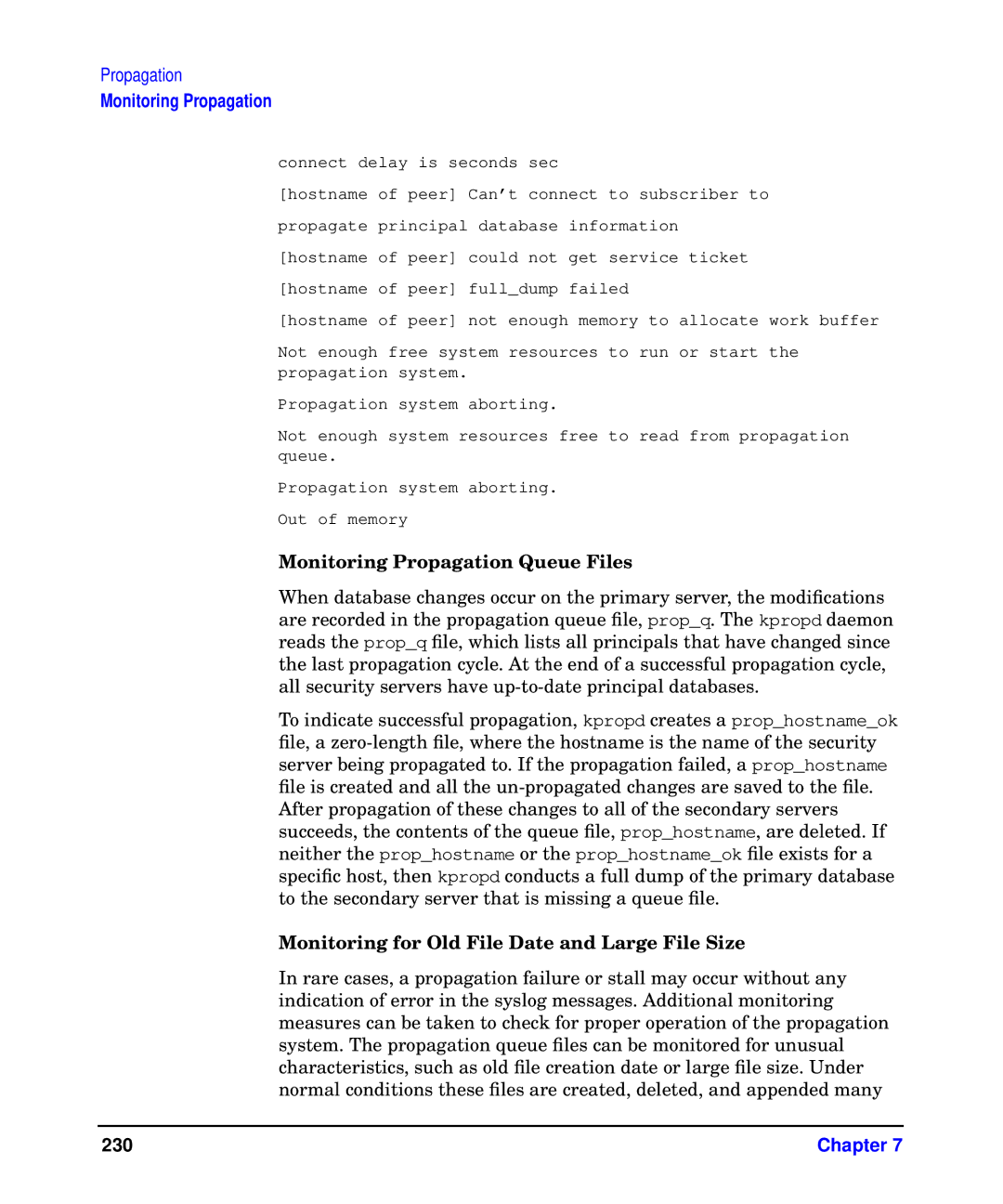Propagation
Monitoring Propagation
connect delay is seconds sec
[hostname of peer] Can’t connect to subscriber to propagate principal database information [hostname of peer] could not get service ticket [hostname of peer] full_dump failed
[hostname of peer] not enough memory to allocate work buffer
Not enough free system resources to run or start the propagation system.
Propagation system aborting.
Not enough system resources free to read from propagation queue.
Propagation system aborting.
Out of memory
Monitoring Propagation Queue Files
When database changes occur on the primary server, the modifications are recorded in the propagation queue file, prop_q. The kpropd daemon reads the prop_q file, which lists all principals that have changed since the last propagation cycle. At the end of a successful propagation cycle, all security servers have
To indicate successful propagation, kpropd creates a prop_hostname_ok file, a
Monitoring for Old File Date and Large File Size
In rare cases, a propagation failure or stall may occur without any indication of error in the syslog messages. Additional monitoring measures can be taken to check for proper operation of the propagation system. The propagation queue files can be monitored for unusual characteristics, such as old file creation date or large file size. Under normal conditions these files are created, deleted, and appended many
230 | Chapter 7 |
